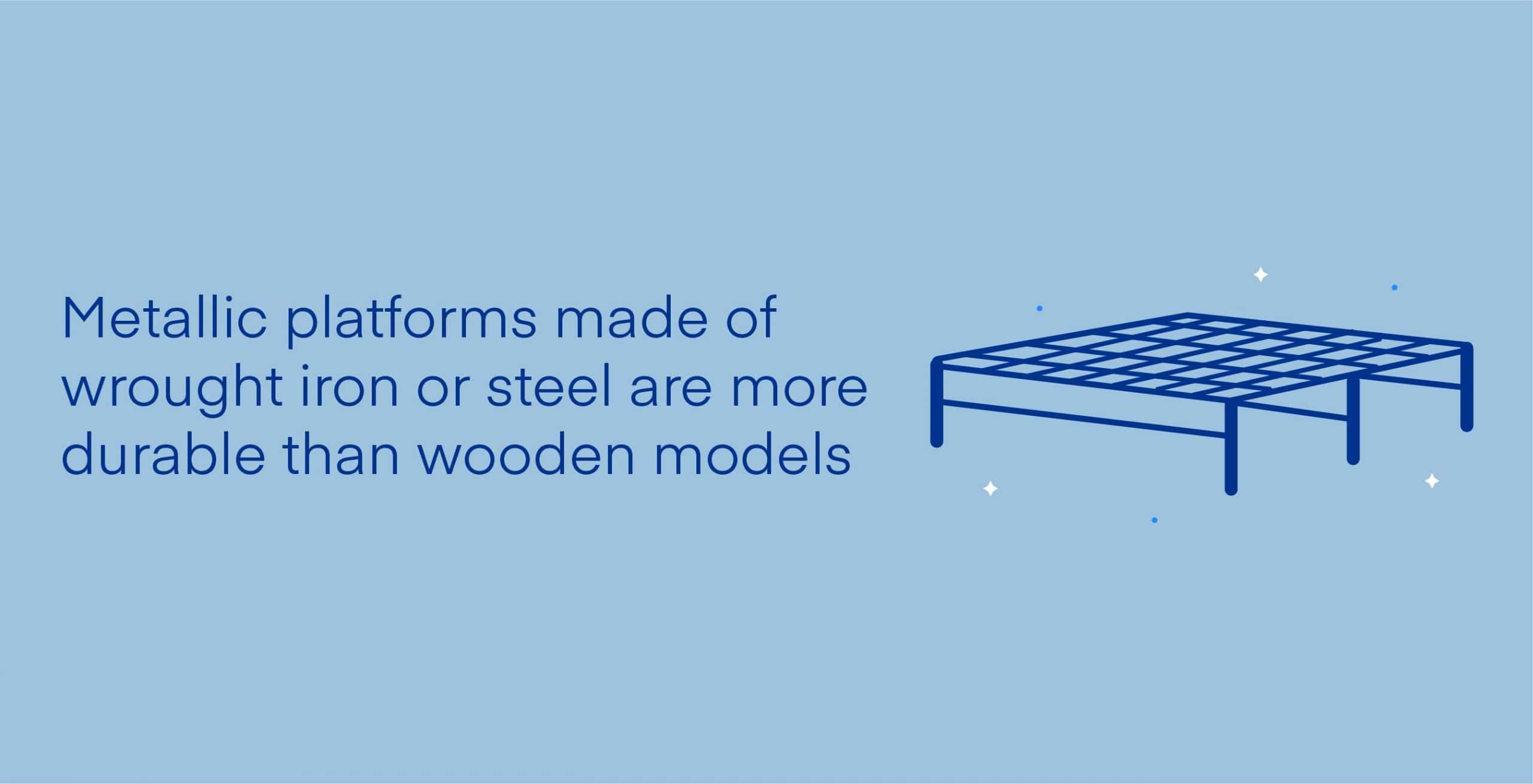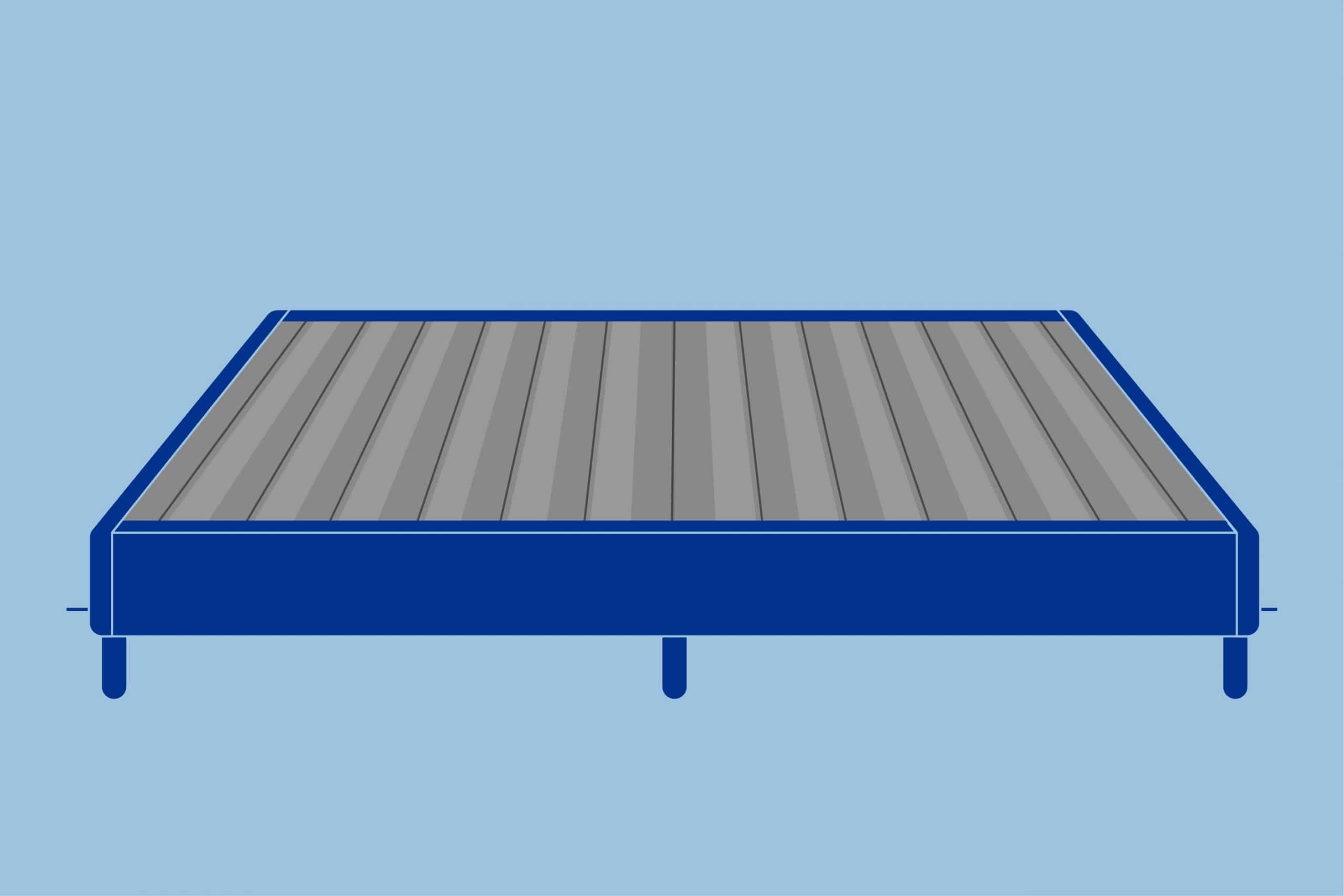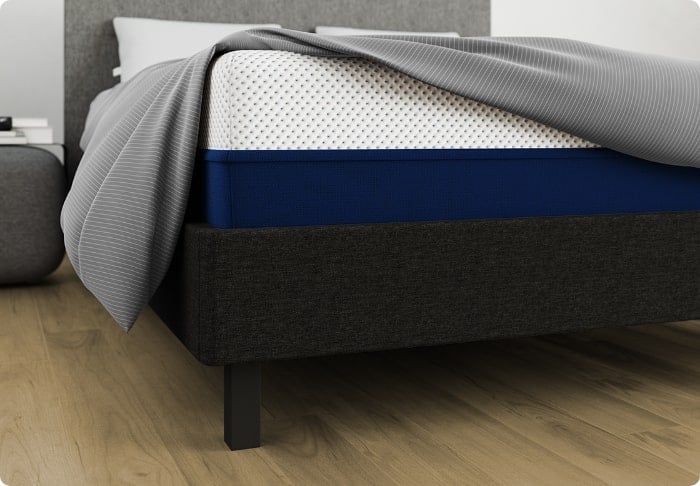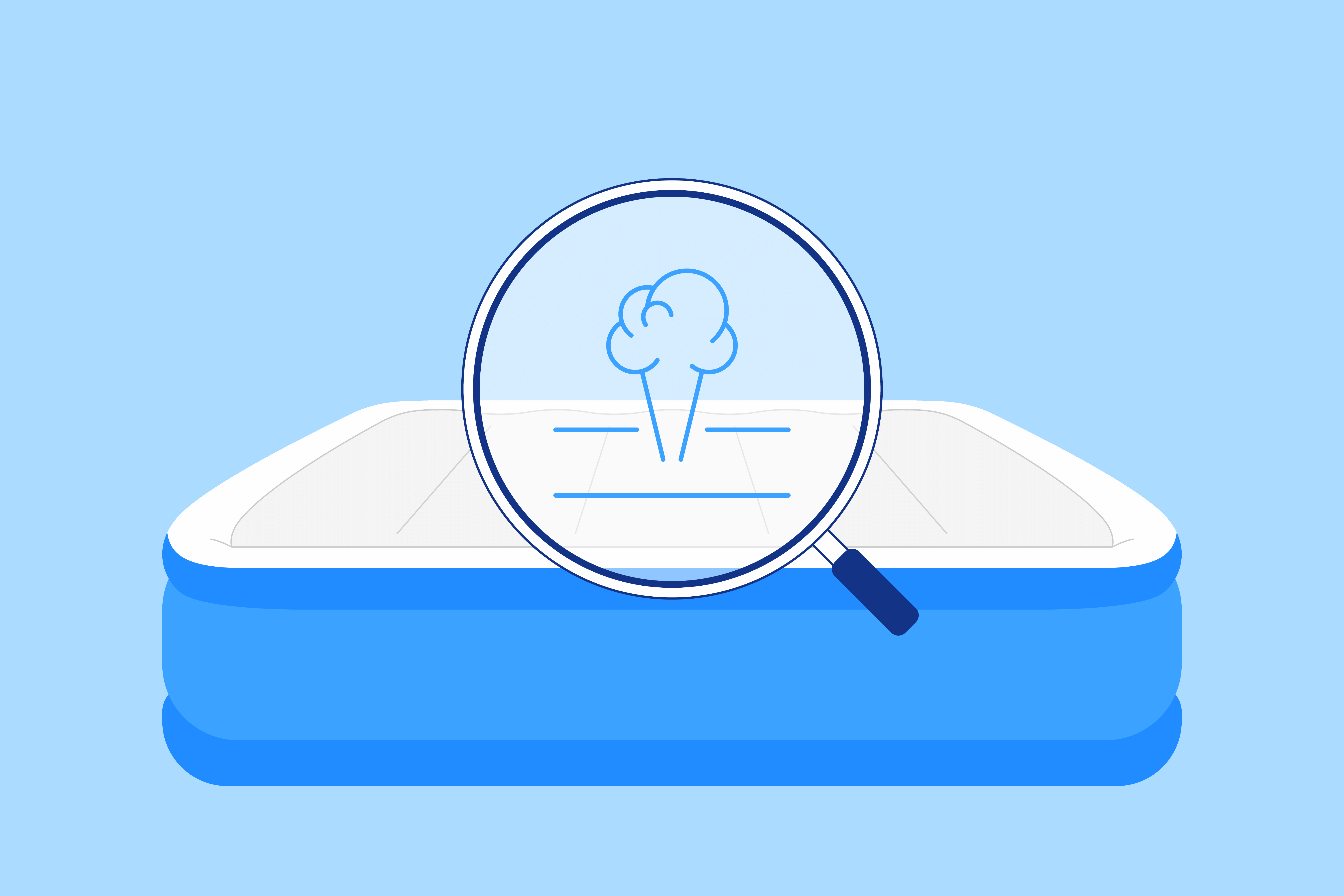Key Takeaways
- Versatile and Sturdy: Platform beds offer a combination of simplicity and sturdiness and are available in various styles. They can accommodate any mattress type, making them a versatile choice for different sleeping preferences.
- Eliminate the Need for Box Springs: Platform beds feature a slatted wood, solid wood, or metal surface, eliminating the need for a separate box spring or foundation. This design reduces the overall height of the bed, creating a lower profile compared to other bed frames.
- Various Styles and Surfaces: Platform beds come in a range of styles, including classic, headboard and footboard, upholstered, storage, floating surface, and metallic. They also offer different surface options, such as solid, slatted, or metallic, catering to various aesthetic preferences and support needs.
A platform bed combines simplicity with sturdiness and comes in various styles. They are a versatile option that works with any mattress type.
Once you’ve found the best mattress, you’ll need a sturdy frame to support it. Without proper support, mattresses become vulnerable to sagging and wear.
Features of a Platform Bed Frame
A platform bed is a simple, low-raised bed frame with a slatted wood, solid wood, or metal surface—eliminating the need for a box spring or foundation. You may keep your mattress directly on a platform bed without having to invest in an additional support system.
Removing a foundation or box spring from the equation reduces your bed’s height. Platform beds have a lower profile compared to other types of bed frames—usually between 6 and 18 inches tall.
Platform beds may be a legless solid block, slightly raised from the ground, or they may have small legs with a flat solid or slatted surface.
Platform beds are versatile because they are suitable for almost all mattress types. Foam mattresses tend to decompress faster if they don’t find the required support. Platform bed frames with their solid or slatted surface provide the right amount of support required for any mattress type.
Platform Bed Frame Sizes and Dimensions
Platform beds typically come in all the standard sizes, from twin to king platform beds.
| Platform Bed Frame Size | Dimensions (IN) | Dimensions (CM) |
|---|---|---|
| California King | 72 inches by 84 inches | 183 cm by 213.5 cm |
| King | 76 inches by 80 inches | 193 cm by 203.5 cm |
| Queen | 60 inches by 80 inches | 152.5 cm by 203.5 cm |
| Full | 54 inches by 75 inches | 134.5 cm by 190.5 cm |
| Twin | 39 inches by 75 inches | 99.06 cm by 190.5 cm |
If you’re debating which mattress size is the right one for you, we suggest reading some of our mattress size comparison guides:
- Twin vs. Twin XL: What’s the Difference
- Twin vs Full vs Queen: Which Mattress Size is Right For You?
- King vs. Queen Bed: What’s the Difference?
- King vs. California King: What’s the Difference?
- Twin XL vs. Split King: What’s the Difference?
Types of Platform Beds
Platform beds are available in a wide variety of styles such as classic, headboard and footboard, upholstered, storage, floating surface, and metallic.
Classic Wood Platform Bed
Typically a classic platform bed does not have a headboard or footboard. It is a simple bed frame usually made with wood, medium-density fiberboard (MDF), or particleboard. The classic style is suitable for those living in a studio apartment bedroom or a small multi-room apartment where space is still limited.
Headboard and Footboard Platform Bed
The increasing popularity of platform beds has led to headboard and footboard additions. For a regal look, you may opt for a fancy wooden headboard and footboard. Platform beds with headboards and footboards look good in bigger bedrooms, as they add to the room’s aesthetic appeal.
Upholstered Platform Bed
Upholstered platform bed frames suit more modern and contemporary decor. The upholstery comes in many color options. From vibrant pink, red, gold, and blue to subtle beige, cream, and grey—choose one to suit your preference. You can even choose a color-coordinated headboard to complement your upholstered platform bed. Colorful upholstered platform beds are a good option for children’s rooms too.
Storage Space Platform Bed
Lots of platform beds come with built-in storage. If you have a small bedroom but need more sleeping surface, a platform bed with storage drawers is a convenient option.
Floating Surface Platform Bed
As its name implies, a floating platform bed gives the impression that it’s floating off the ground. A plank made of wood, particleboard, or MDF serves as the base for your mattress, which is supported by a rectangular structure at the center.
From a distance, you won’t notice the support structure beneath the extended plank. The hidden support structure gives you the impression of a floating sleeping surface.
Metal Platform Bed

Metallic platform beds are made of wrought iron or steel. They are more durable than wooden models. However, metal rails may apply more pressure on foam mattresses causing them to decompress. If you have a bed with springs, then a metallic platform bed may suit your purpose.
Types of Platform Bed Surfaces
The basic feature of a platform bed is that it’s ready to use, as a mattress may be placed directly on it without the need for a box spring or additional foundation. However, if you’d like to increase your bed’s height, you can still pair these bed frames with a box spring or another kind of bed foundation. If you are placing a mattress foundation on a platform bed, be mindful of available space. A platform bed with a headboard may not leave enough room for a tall mattress with a foundation.
Platform beds are usually solid, slatted, or metallic.
Solid Surface
The solid surface is usually made of wood, MDF, or particleboard with tiny holes or channels. The channels and holes promote airflow beneath the mattress. A solid base such as a bunkie board may make your bed feel firmer than a slatted surface.
Slatted Surface
The slats may be made of wood, particleboard, composite wood like MDF, or plastic. These slats are placed 2 to 2.75 inches apart for best support. They are usually rigid and straight but sometimes flexed to bow outward to counteract the weight of the mattress and the sleeper. Closely spaced slats provide a sturdy base while promoting airflow.
Metallic Surface
Platform beds with metal rails may not be suitable for a foam mattress because the rails may put too much pressure on the foam, causing it to sag.
Pros and Cons of a Platform Bed
Platform beds come with their share of pros and cons.
Pros:
- More affordable because platform beds do not require the use of any other mattress support systems
- Multi-purpose, because of the under-bed storage
- Easy to find a mattress for a platform bed
- Solid surface with holes or slatted surface promotes airflow and enhances mattress breathability
Cons:
- A low profile may make it difficult to get in and out of bed, especially for those with back or knee pain
FAQs
Are platform beds available in all sizes?
From a twin size bed to a king size bed, platform beds are available in all standard mattress sizes.
Do platform beds provide the required support for all mattress types?
Usually, platform beds are compatible with all mattress types. But we recommend checking with the mattress manufacturers about the ideal base.
Conclusion
Modern platform beds have different style options. Opting for a platform bed saves you more money than if you were to invest in an entire bed set. Moreover, platform beds have drawers for extra storage. Platform beds’ compatibility with all mattress types makes them a popular choice.
About the author
Mitchell Tollsen is a graduate student and a freelance writer who’s contributed to the Early Bird blog for three years. Mitchell’s always been fascinated by the science of sleep and the restorative processes our bodies undergo when at rest. The self-titled “Sleep Expert” is always looking for ways to improve his shut-eye, and throughout the years has implemented numerous lifestyle changes and tried dozens of sleep-promoting gadgets to determine the best ways to truly get better rest.
View all posts





